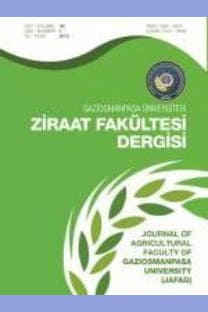Socio –Economic Determinants of the Level of Social Capital among Small-Scale Farming Households in Kogi State, Nigeria
Socio-economic factors influencing the level of social capital among small-scale farming households in Kogi State were investigated. A total of 352 farming households were randomly selected across the agricultural zones in the state. Descriptive statistics and multinomial logit regression analysis were employed to analyse the data. The study revealed that farming households belong to three levels of social capital comprising bonding (25%), bridging (12%) and linking (63%). The probability of farming household having bonding social capital relative to bridging social capital increases with sex of the head of household and position held in group, but reduces with age of household head (p< 0.05). In the same vein, the tendency of having linking social capital among farming households relative to bridging increases with farm size and amount of credit received by the household as well as age, sex, and level of education of the household head (p< 0.05). The study concluded that social capital level is influenced by the socioeconomic characteristics of the farming households. It is therefore recommended that agricultural groups need to be strengthened and supported by government and the community through services in the area of input supply, provision of credit facilities and farm land as well as education of the household members.
Keywords:
Determinants, multinomial logit regression, small-scale, social capital,
___
- Abdul, B., Munasib, A. and Jeffrey, L. J. (2011). The effect of social capital on the choice to use sustainable agricultural practices Journal of Agricultural and Applied Economics, 43(2), 213–227.
- Ajani, O.I.Y. and Tijani, O.A. (2009). The role of social capital in access to microcredit in Ekiti State, Nigeria. Pakistan Journal of Social Sciences 6(3): 125-132
- Anyiro, C.O. (2014). Social capital dimensions and its implications on poverty status of rural farm households in Abia State, Nigeria. The Nigerian Agricultural Journal, 45 (1and2), 102-118.
- Balogun, O. L and Yusuf, S. A. (2011): Effect of social capital on welfare of rural households in south-western states, Nigeria. Journal of American Science, 7(3), 506-514.
- Esilaba, A. O., Byalebeka, J. B., Nakiganda, A., Mubiru, S., Ssenyange, D., Delve, R. J., Mbalule, M. and Nalukenge, G. (2001). Integrated nutrient management in Iganga district, Uganda: Diagnosis by participatory learning and action research. Centro Internacional de Agricultura Tropical (CIAT), Network on Bean Research in Africa, Kampala, UG. 71p (CIAT Africa occasiona occasional publications series no.35). Retrieved from http://ciatlibrary.ciat.cgiar.org/Articulos_ciat/op35_diagnostic.pdf
- Federal Fertilizer Department (FFD), (2011). Fertilizer use and management practice for crop in Nigeria, (4th edition). Abuja. Federal Ministry of Agriculture and Rural Development.
- Ibitoye, S.J. (2006). The impact of cooperative society on rural development in Akpan Local Government Area of Kogi State Nigeria. National Association of Science, Humanitie and Education Research Journal, 4(2), 193-198.
- Isham, J. (2000). Can Investments in Social Capital Improve Local Development and Environmental Outcomes? A Cost-Benefit Framework to Assess the Policy Options. Paper prepared for Middlebury College’s (21st Annual Conference on Economic Issues). Middlebury, VT
- Isreal, G, Beaulieu, L. and Hartless, G. (2001). The influence of family and community social capital on educational achievement. Rural Sociology, 66, 45-68.
- Martin, K., Rogers, B. Cook, J., and Joseph, H. (2004). Social capital is associated with decreased risk of hunger. Social Science and Medicine, 58, 2645-2654.
- National Encyclopedia (2015). Nigerian Agriculture. From www.nationsencyclopedia.com./Africa/Nigeria-agric.htm
- Njuki, J.M., Mapila, M.T., Zingore,S. and Robert, D. (2008). The dynamics of social capital in influencing use of soil management options in the Chinyanja triangle of Southern Africa. Ecology and Society. 13(2): 9. [Online] URL: http://www.ecologyandsociety.org/vol13/iss2/art9.
- Oji-Okoro, I. (2011). Analysis of the contribution of agricultural sector on the Nigerian economic development. World Review of Business Research, 1(1), 191–200.
- Omotesho, O.A. (2015). Let the small-scale farmers be in good standing. University of Ilorin 158th inaugural lecture series. ISBN 978-978-53221-6-3. Ilorin, Nigeria. Unilorin Press.
- Nmadu, J. N., Eze, G. P. and Jirgi, A. J. (2012). Determinants of Risk Status of Small Scale Farmers in Niger State, Nigeria. British Journal of Economics, Management and Trade, 2(2): 92-108, 2012.
- Rahji, M.A.Y. (2006). Tropical Agriculture (Trinidad) in press.
- Rahji, M.A.Y. and Fakayode, S.B. (2009). A multinomial Logit Analysis of agricultural credit rationing by commercial banks in Nigeria. International Research Journal of Finance and Economics, Issue 24, 90-100.
- World Bank, (2014). Agriculture and rural development data. The World Bank. Retrieved from www.data.worldbank.org/.../agric-and-rural-development-
- Yusuf, S.A. (2008). Social capital and households welfare in Kwara State, Nigeria, Journal of Human Ecology; 23(3), 219-229.
- Zhu, J. and Hastie, T. (2004). Classification of gene microarrays by penalized logistic regression. Biostatistics, 5(3), 427-443. Retrieved from https://books.google.com.ng/books?isbn=0262195 82.
- ISSN: 1300-2910
- Yayın Aralığı: Yılda 3 Sayı
- Başlangıç: 1985
- Yayıncı: Tokat Gaziosmanpaşa Üniversitesi Ziraat Fakültesi Dergisi Yayın Ofisi
Sayıdaki Diğer Makaleler
Kaz (Ida) Dağı’nın Yerel Kestane Ağaçlarındaki Cryphonectria parasitica’nın Karakterizasyonu
Zerrin KOZMA, Birgul GÜLNAR, Burcu PEKDEMİR, Hilal ÖZKILINÇ
Ayo Fatimoh AYANLERE, Olubunmi Abayomi OMOTESHO, Abdulazeez MUHAMMAD LAWAL
Ayo Fatimoh AYANLERE, Abdulazeez MUHAMMAD LAWAL, Olubunmi Abayomi OMOTESHO
Mustafa BAYRAM, Abdurrahman ONARAN
ABDURRAHMAN ONARAN, MUSTAFA BAYRAM
Fatih YALÇIN, ZEKİ MUT, ÖZGE DOĞANAY ERBAŞ KÖSE
Mikrobiyal Dipeptidil Peptidaz IV’ün Kinetik Özelliklerinin Belirlenmesi
